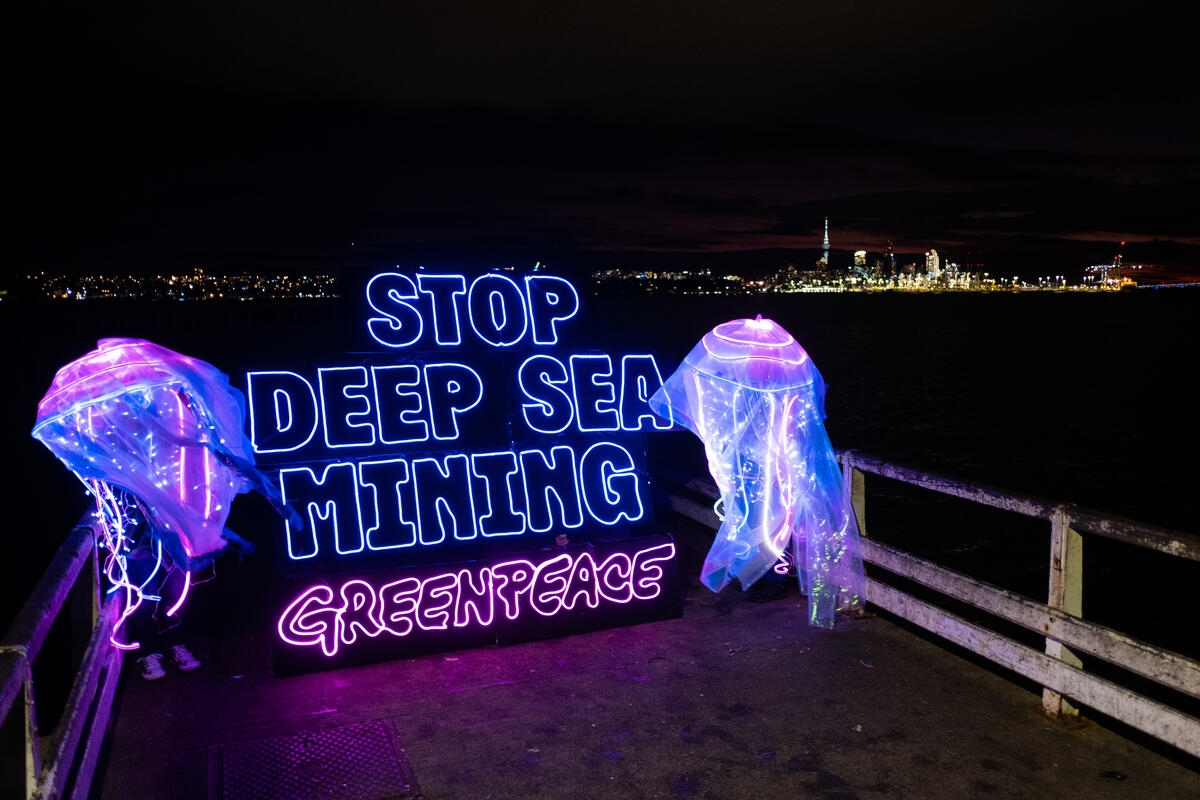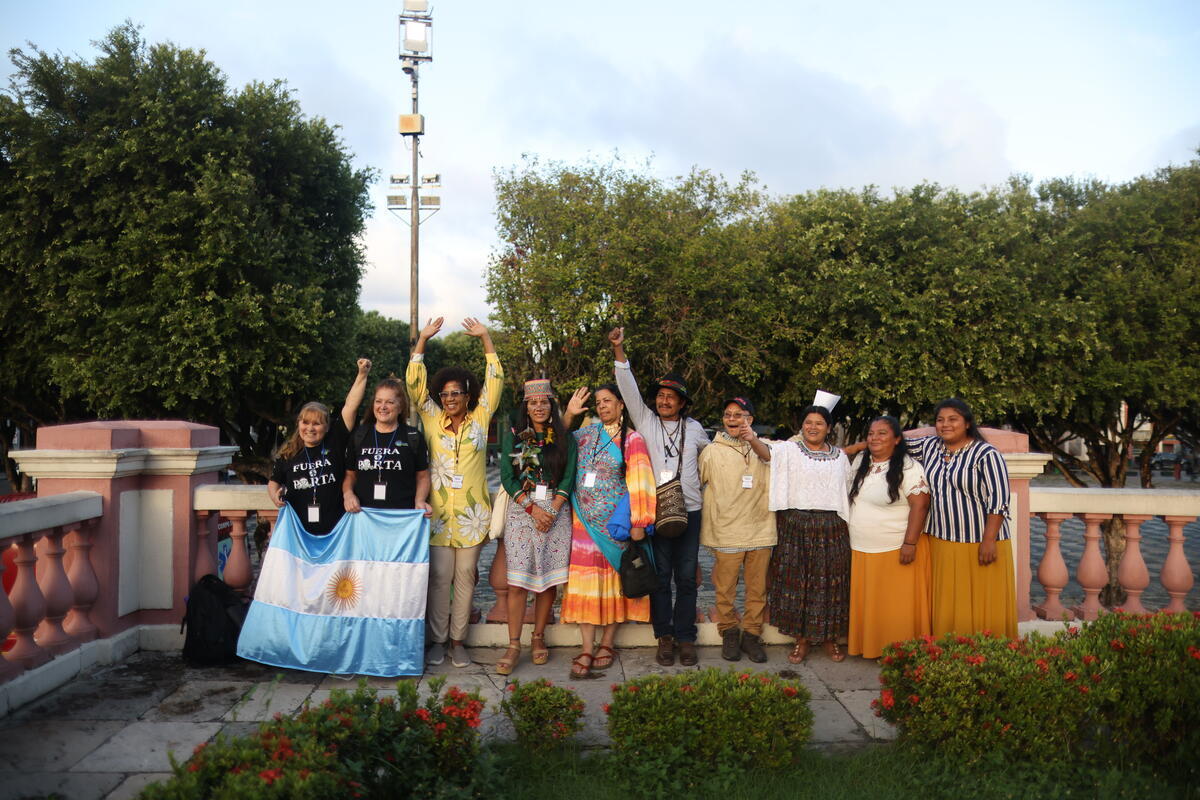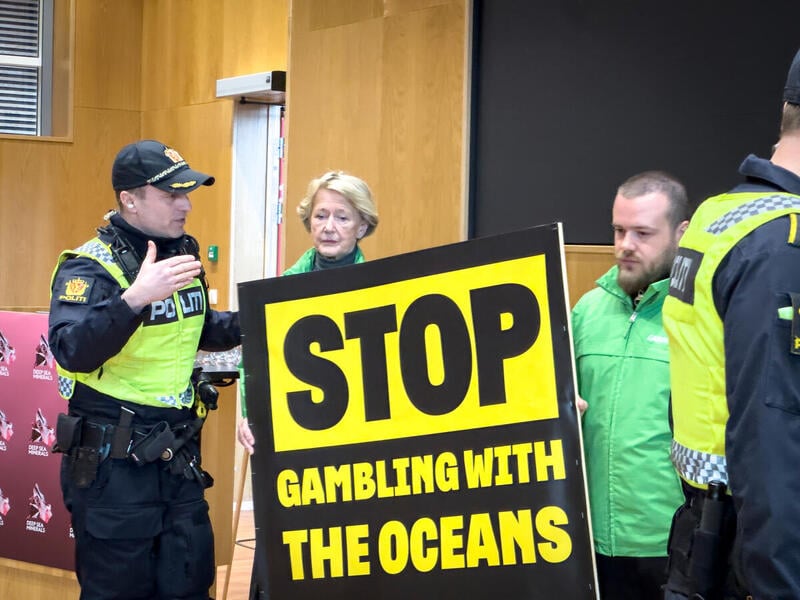Manila, 22 September 2017 – A week-long beach clean up has exposed the companies most responsible for plastic pollution after an audit of plastic waste conducted on Freedom Island, a critical wetland habitat and Ramsar site [1] spanning 30 hectares in Manila Bay – one of the worst areas for plastic pollution in the Philippines.
The Greenpeace Philippines and #breakfreefromplastic movement audit, the first of its kind in the country, revealed that Nestlé, Unilever, and Indonesian company PT Torabika Mayora are the top three contributors of plastic waste discovered in the area, contributing to the 1.88 million metric tonnes of mismanaged plastic wastes in the Philippines per year[2].
“When we throw something away, there is no ‘away’. The Philippines is the third biggest source of plastic ocean pollution because global corporations are locking us into cheap, disposable plastics, rather than innovating and finding solutions,” said Abigail Aguilar, Campaigner for Greenpeace Philippines.
“These corporations are the missing piece in the global fight against plastic pollution. Citizens are burdened with the social and environmental impacts of plastic waste, rather than those that are responsible,” Aguilar added.
During the clean up, Greenpeace volunteers and coalition partners from the #breakfreefromplastic Movement[3], found items ranging from styrofoam to footwear, along with single-use plastics such as bags, plastic bottle labels, and straws. A total of 54,260 pieces of plastic waste were collected during the audit, with most products being sachets.
Developing countries, such as the Philippines, run on a “sachet economy”, which encourages the practice of buying Fast Moving Consumer Goods (FMCGs) in small quantities. This drives market and profit share for most companies by making it more accessible to people with limited incomes [4]. However, low-value single-use sachets are not collected by waste pickers and usually end up in landfills or scattered indiscriminately as litter in the streets or marine debris.
“It’s time these companies stop business-as-usual and use their resources to innovate and redesign their packaging and delivery solutions,” Aguilar said. “They could for instance practice extended producer responsibility [5] where companies substitute non-reusable and non-recyclable products with new systems, such as refillables – prevention instead of end-of-pipe waste management. In the long term they’ll see this will yield strong environmental and economic benefits.”
The Philippines ranks as the third worst polluter into the world’s oceans, with China as number one. In a study, China, Indonesia, Philippines, Thailand, Vietnam and Malaysia are also in the list of top 10 countries[6] with mismanaged plastic waste. While their economies are growing, this new-found spending power has led to ‘exploding demand for consumer products that has not yet been met with a commensurate waste-management infrastructure.’[7]
ASEAN countries, due to their lengthy coastlines and high plastic usage, are some of the primary sources of marine plastics globally. Asia-Pacific Economic Cooperation (APEC) estimates that the cost to the tourism, fishing and shipping industries was US$1.2 billion in the region alone.
Greenpeace conducted the plastic waste brand audit as part of the #breakfreefromplastic movement and its member organisations Mother Earth Foundation, Ecowaste Coalition, Global Alliance for Incinerator Alternatives, and Health Care without Harm.
ENDS
Notes to the editors:
Detailed results of the audit can be accessed here
Photos and videos can be accessed here.
[1] Annotated list of wetlands of international importance.
[2] [6] Jambeck, Jenna R., Roland Geyer, Chris Wilcox, Theodore R. Siegler, Miriam Perryman, Anthony Andrady, Ramani Narayan, and Kara Lavender Law. “Plastic Waste Inputs from Land into the Ocean.”
[4] Sachets help low income communities but are a waste nightmare.
[5] Extended Producer Responsibility.
[7] Ocean Conservancy and the McKinsey Center for Business and Environment. “Stemming the tide: Land-based strategies for a plastic-free environment.”
[8] These are the companies that have been found most responsible for plastic pollution on Freedom Island:
- Nestle
- Unilever
- PT Torabika Mayora
- Universal Robina Corporation
- Procter & Gamble
- Nutri-Asia
- Monde Nissin
- Zesto
- Colgate Palmolive
- Liwayway
Media contacts:
Angelica Carballo Pago, Media Campaigner, Greenpeace Southeast Asia – Philippines
Email: [email protected], phone +63 949 8891332
Greenpeace International Press Desk, +31 (0) 20 718 2470 (available 24 hours), [email protected]



